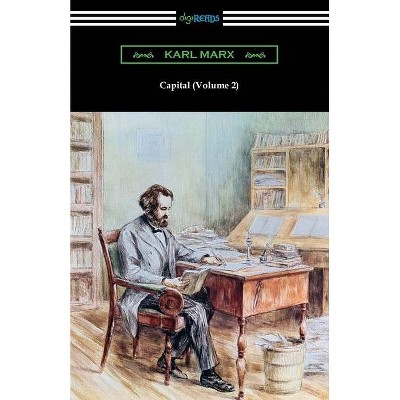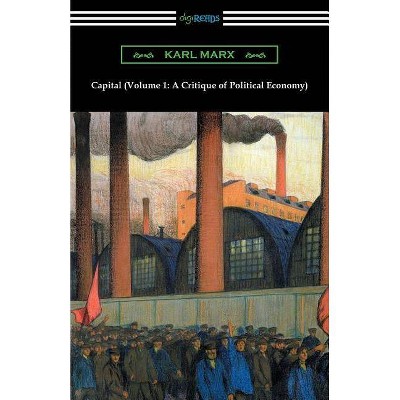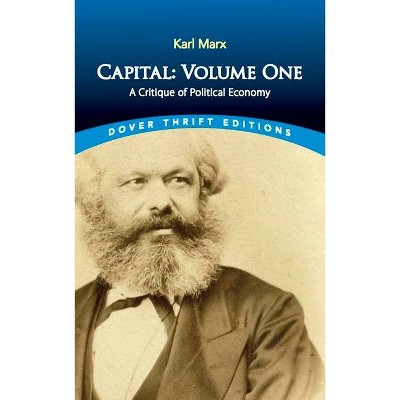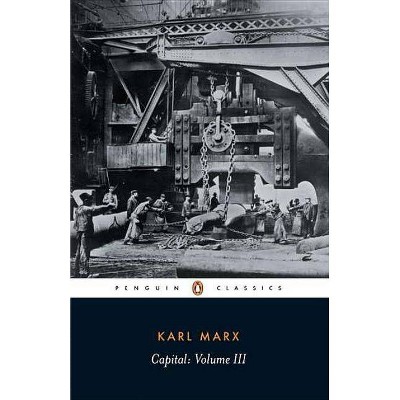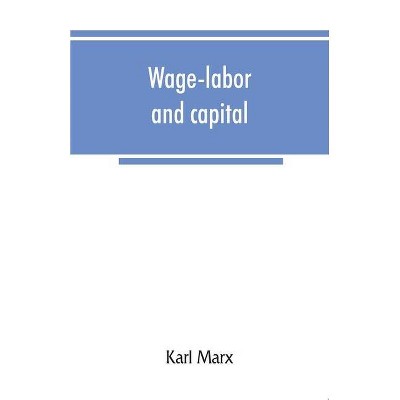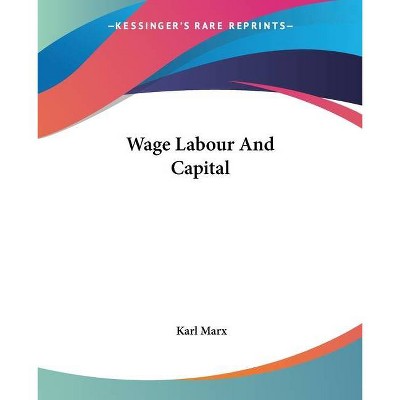Capital, Volume One - by Karl Marx (Paperback)
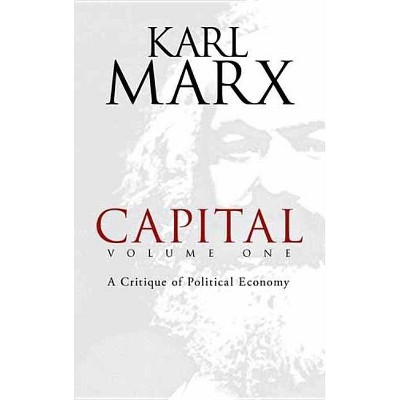
Similar Products
Products of same category from the store
AllProduct info
<p/><br></br><p><b> About the Book </b></p></br></br>Marx's classic of political economics constitutes a work of tremendous influence. In addition to its critique of private property, it also offers a thorough analysis of the scientific laws of capitalism.<p/><br></br><p><b> Book Synopsis </b></p></br></br>Hailed by Friedrich Engels as "the bible of the working class," this 1867 classic of political economics changed the course of history. Thirty years in the making, <i>Capital, Volume I</i> was the first installment of Karl Marx's three-part <i>Das Kapital </i>and the only volume published during his lifetime. Marx declared that society is evolving from crude, unbalanced economic systems toward a utopian state -- specifically, communism. His critiques of private property and class struggles aroused tremendous interest and exercised an influence that resonates to this day.<br>Marx offers a penetrating analysis of capitalism's inner workings, examining commodities, value, money, and other factors related to the system's historic origins and contemporary functions. These considerations form the framework for his conclusion: the system cannot be reformed and must be overthrown by a revolution, resulting in a socialist society in which production serves the needs of every individual rather than generating profits for the few.<p/><br></br><p><b> About the Author </b></p></br></br>One of the 19th century's most influential thinkers, German philosopher Karl Marx (1818-83) formulated the social, political, and economic ideas that serve as the basis for Communism.
Price History
Price Archive shows prices from various stores, lets you see history and find the cheapest. There is no actual sale on the website. For all support, inquiry and suggestion messages communication@pricearchive.us
